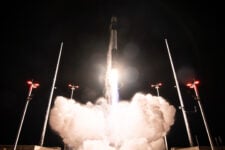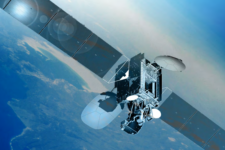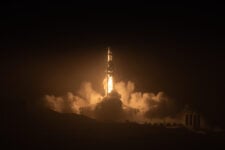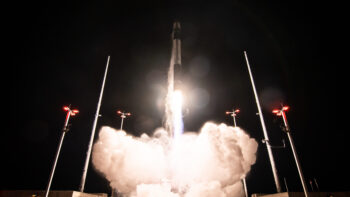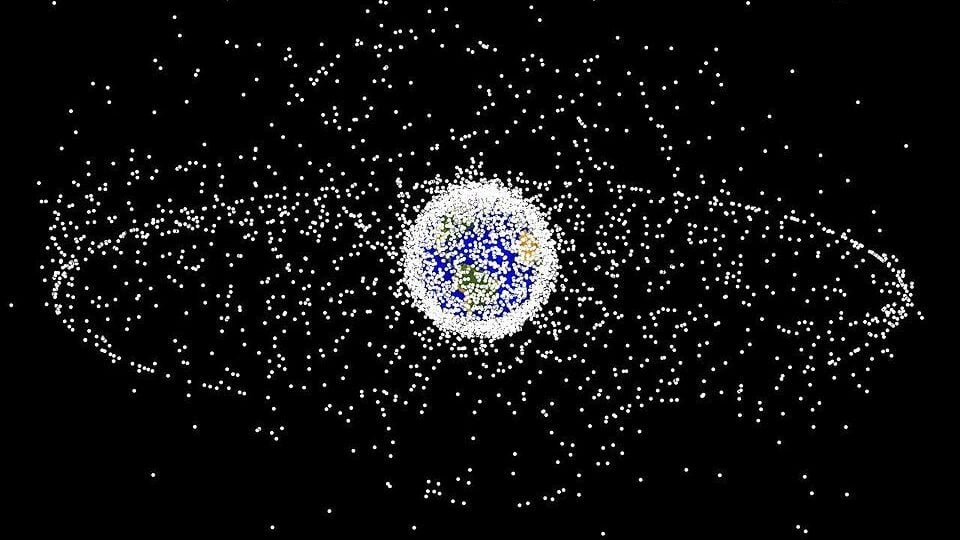
The orbital population of active satellites and dangerous debris continues to grow by leaps and bounds. (NASA)
AMOS 2022 — Space Command and the Commerce Department will run a joint pilot project this fall to demonstrate live how commercial space monitoring data can be used to keep tabs on satellites and dangerous space junk, according to Richard DalBello, head of DoC’s Office of Space Commerce.
“This fall we’re going to be working with the Joint Task Force-Space Defense Commercial Operations Cell or JCO … to conduct an all-commercial pilot in [geosynchronous orbit] that will seek to replicate the DoD’s basic service using only commercial data and analytics,” he told the Advance Maui Optical and Space Surveillance (AMOS) conference today.
DalBello’s office is charged with implementation of the 2018 Space Policy Directive-3 (SPD-3), which transfers to Commerce the Defense Department’s current responsibility for providing space situational awareness data to civil, commercial and non-US space operators, and calls for the development of a new US regime for space traffic management. The goal is to give SPACECOM’s 18th Space Defense Squadron more time to focus on its mission to detect and monitor potentially threatening adversary spacecraft.
“After many years, we now have a situation where — with multiple administrations and bipartisan support of Congress — the decision was made that SSA is important enough that commercial and civil should be separated from space domain awareness and national security space,” DalBello said.
“I always rush to add the Defense Department’s not going away,” he added. “They’re just going deeper on their mission, and asking us to help pick up the slack on things that one might argue [are] not central to their concerns.”
The commercial pilot program is a first step in enabling a smooth transition, which DoD and Commerce kicked off formally with the Sept. 7 signature of a memorandum of agreement that set up working groups to has out the devilish details.
“What we would do is try to set up a situation where we’re actually doing the active tracking and conjunction assessment over some period of three months, four months, five months, something like that,” DalBello explained.
The next step would be to review the data gathered and compare the results to what would have been found using the military’s Space Surveillance Network of telescopes and radar, as well as “the 18th’s processes,” he added.
DalBello noted that SPACECOM’s JCO can bring into the initiative commercial data providers, analytics firms and software companies that already belong to its SDA Marketplace.
“Space Systems Command operates the marketplace to give companies a venue to compete and allow users to take better advantage of non-traditional data sources,” according to a JTF-SD press release from November 2021. Military requirements are put out via the website, and bids are uploaded anonymously by vendors, the release explains.
In addition, DalBello said, his office is talking with the industry-run Space Data Association, a group of space operators that share data among themselves on the whereabouts of their satellites as well as on potential collision threats including from orbital debris, about participating in the tracking pilot.
“We’re in the process of that dialogue, but they’ve suggested they may be able to bring a couple hundred satellites that we could that we could target,” he said.
DalBello said that Commerce doesn’t intend to simply duplicate what SPACECOM does now, but to supply operators with improved information needed to allow them to keep their spacecraft safe.
“We do want to provide a forward-leaning, technologically superior product to what they’re receiving today,” he said.
Nor does Commerce intend to build its own SSA sensors, but rather it will buy commercial data and products, DalBello said.
“We have a goal of trying to take maximum advantage of new technologies that exist. Many of those are commercial technologies from young companies,” he stressed. “So, I think the issue as we go forward is ‘How do we keep what DoD is doing and what the Department of Commerce is doing in alignment?’ And that will be a central concern of the dialogue that we have with the department going forward.”
Commerce already has signed a contract with space tracking firm LeoLabs, and DalBello said that more will follow.
“It’s our expectation that we’ll have a sustained need for fresh data as we go forward, and we will soon be establishing some kind of contract vehicle to ensure the continued access to commercial data as we go forward. We’ll also be initiating contract processes for buying other key commercially available technologies, data and services,” he elaborated.
“I have every expectation that that pilot will be successful, and will offer us a path forward towards an acquisition,” DalBello added.





